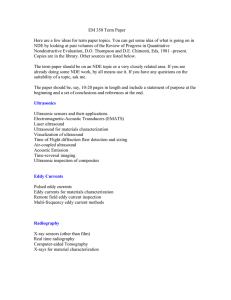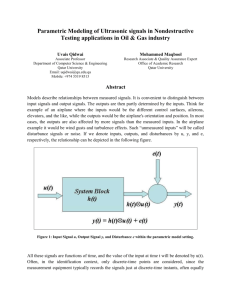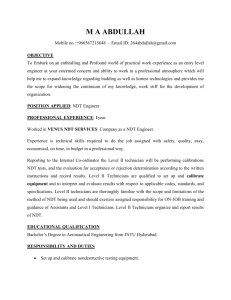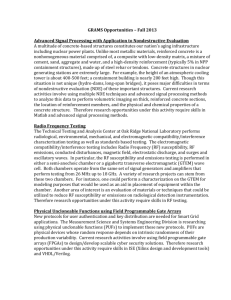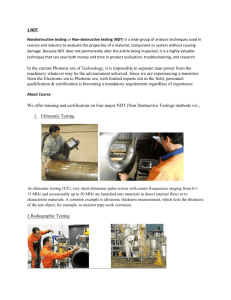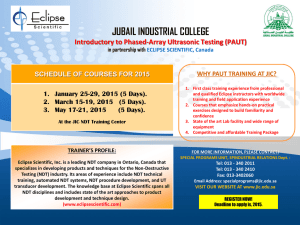Nondestructive Material Evaluation Nondestructive Material Evaluation
advertisement
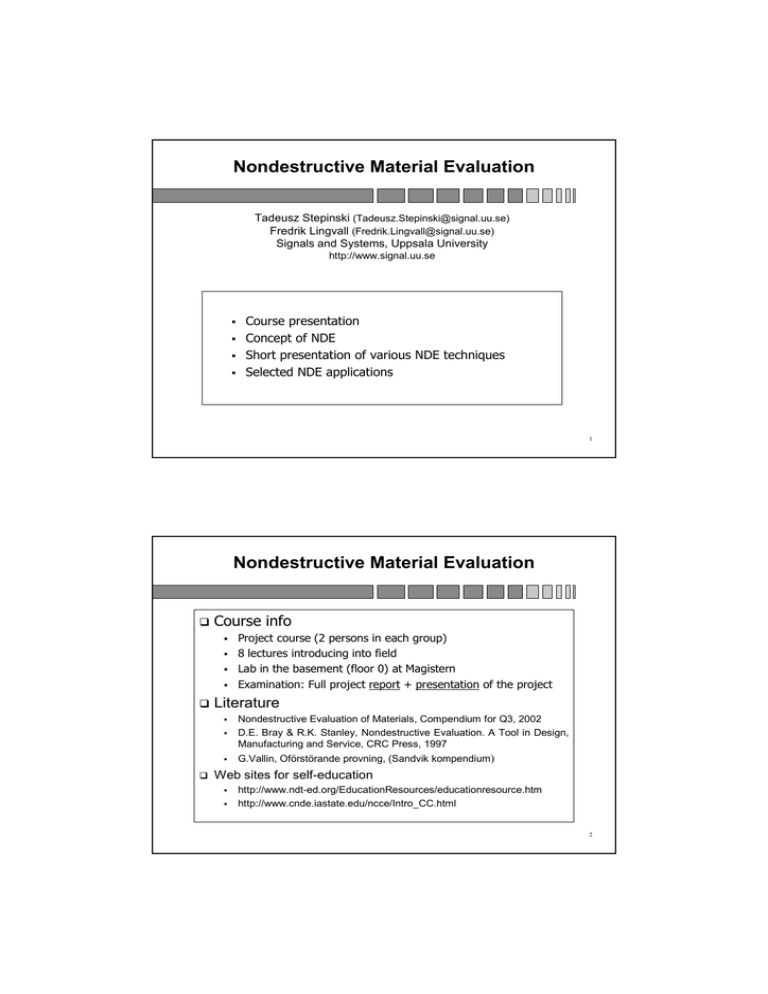
Nondestructive Material Evaluation Tadeusz Stepinski (Tadeusz.Stepinski@signal.uu.se) Fredrik Lingvall (Fredrik.Lingvall@signal.uu.se) Signals and Systems, Uppsala University http://www.signal.uu.se ! ! ! ! Course presentation Concept of NDE Short presentation of various NDE techniques Selected NDE applications 1 Nondestructive Material Evaluation " Course info ! ! ! ! " Literature ! Nondestructive Evaluation of Materials, Compendium for Q3, 2002 D.E. Bray & R.K. Stanley, Nondestructive Evaluation. A Tool in Design, Manufacturing and Service, CRC Press, 1997 ! G.Vallin, Oförstörande provning, (Sandvik kompendium) ! " Project course (2 persons in each group) 8 lectures introducing into field Lab in the basement (floor 0) at Magistern Examination: Full project report + presentation of the project Web sites for self-education ! ! http://www.ndt-ed.org/EducationResources/educationresource.htm http://www.cnde.iastate.edu/ncce/Intro_CC.html 2 Nondestructive Material Evaluation " Nondestructive Testing ! ! ! NDT is a very broad, interdisciplinary field that plays a critical role in assuring that structural components and systems perform their function in a reliable and cost effective fashion. NDT technicians and engineers define and implement tests that locate and characterize material conditions and flaws that might otherwise cause planes to crash, reactors to fail, trains to derail, pipelines to burst, and a variety of less visible, but equally troubling events. NDT tests are performed in a manner that does not affect the future usefulness of the object or material. In other words, NDT allows parts and materials to be inspected and measured without damaging them. 3 Nondestructive Material Evaluation " Nondestructive Evaluation ! ! ! ! Nondestructive Evaluation (NDE) is a term that is often used interchangeably with NDT. Technically, NDE is used to describe measurements that are more quantitative in nature than NDT. For example, a NDE method would not only locate a defect, but it would also be used to measure something about that defect such as its size, shape, and orientation. NDE may be used to determine material properties such as fracture toughness, formability, and other physical characteristics. 4 Nondestructive Material Evaluation " NDT/NDE Methods ! ! The number of NDT methods continues to grow. Researchers continue to find new ways of applying physics and other scientific disciplines to develop better NDT methods. Six NDT methods that are used most often: o o o o o o visual inspection, dye penetrant testing, magnetic particle testing, electromagnetic or eddy current testing, radiography, and ultrasonic testing. 5
